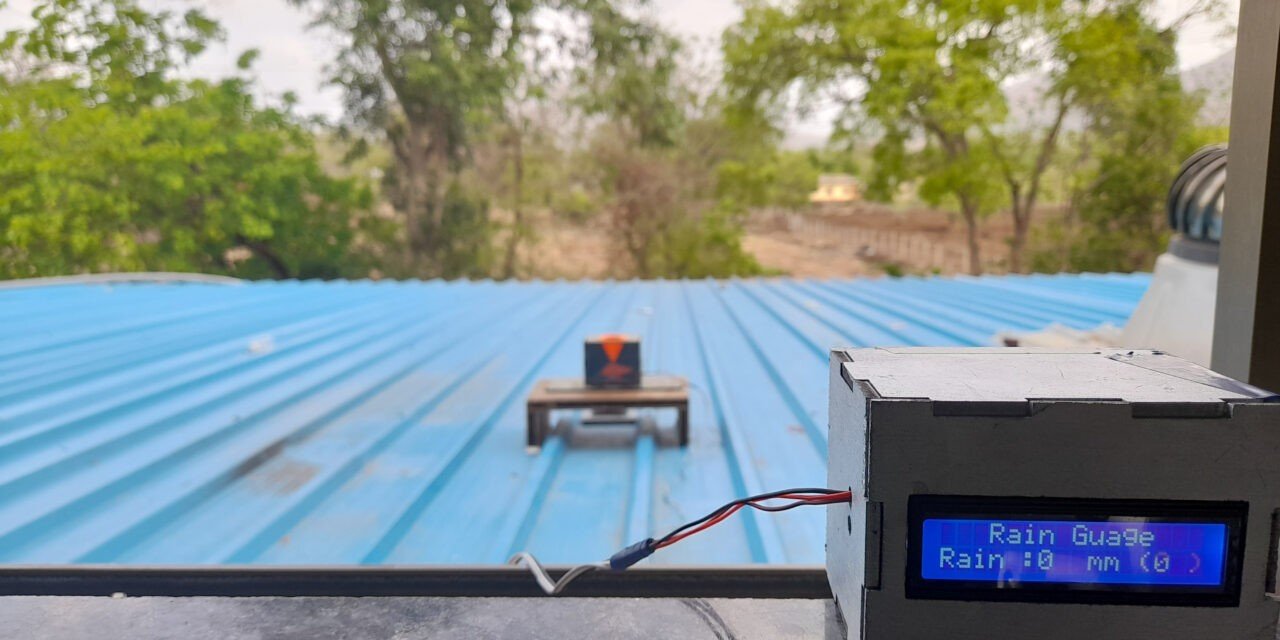Introduction
A rain gauge is a simple and helpful instrument used to measure the amount of rainfall in a particular area. Is your neighborhood headed for a drought? Has precipitation been increasing or decreasing? Measuring the weather patterns around your community can be a fun, exciting hobby and provide conversational material for your family, friends, and neighbors. Monitoring rainfall amounts can even help you determine what outdoor activities to plan for the day. some plants need more water than others, every type of plant has an ideal rainfall amount for seed germination and to stay healthy throughout the season, with some plants needing more water than others. Monitoring rainfall totals becomes even more important if you’re in an area that’s prone to flooding.
In diploma basic ruler technologic course in Vigyan ashram. I make digital Rain Guage in fablab vigyan ashram but that does not work properly.
Read My blog 👇👇
So, Solve the problem I found in the project.
3D model
I Edit the 3d model in Fusion 360 software.
Tipping Bucket
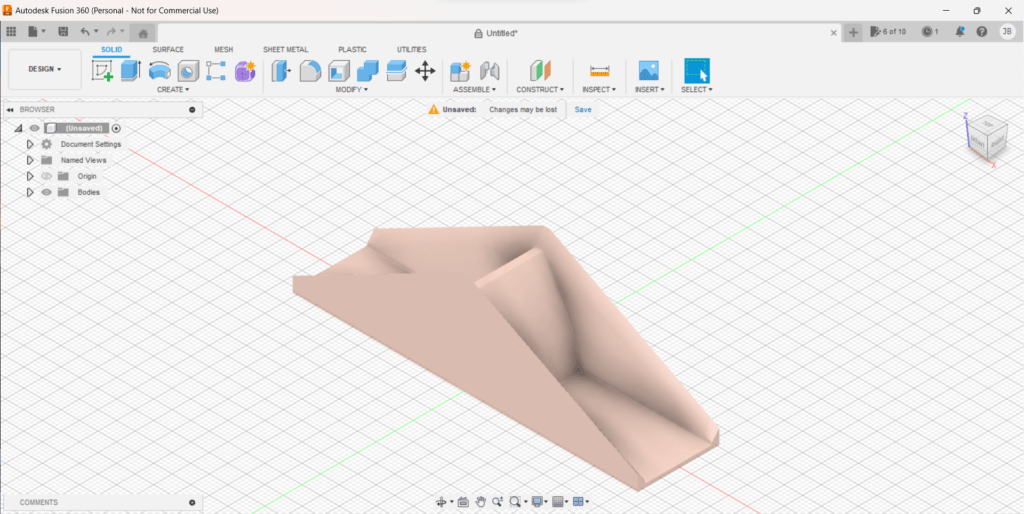
Base
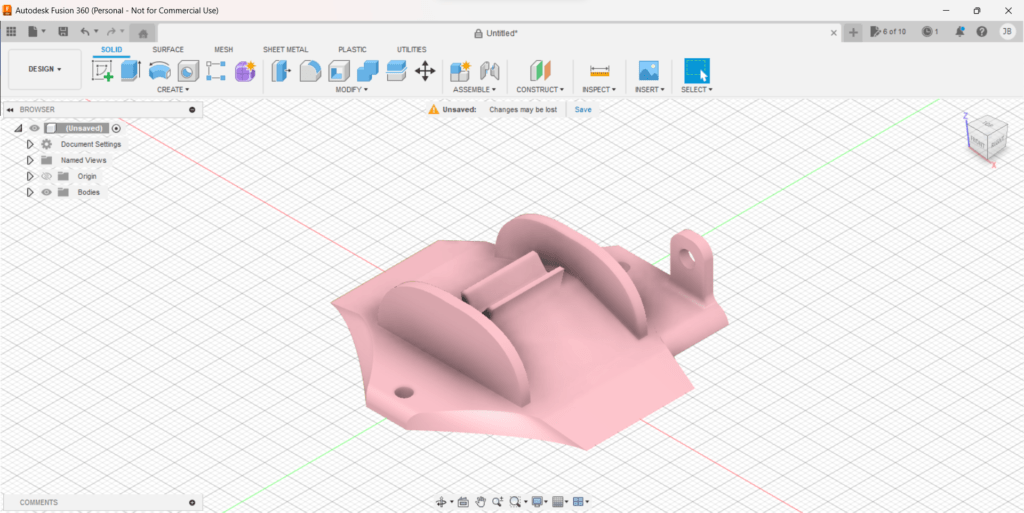
Funnel
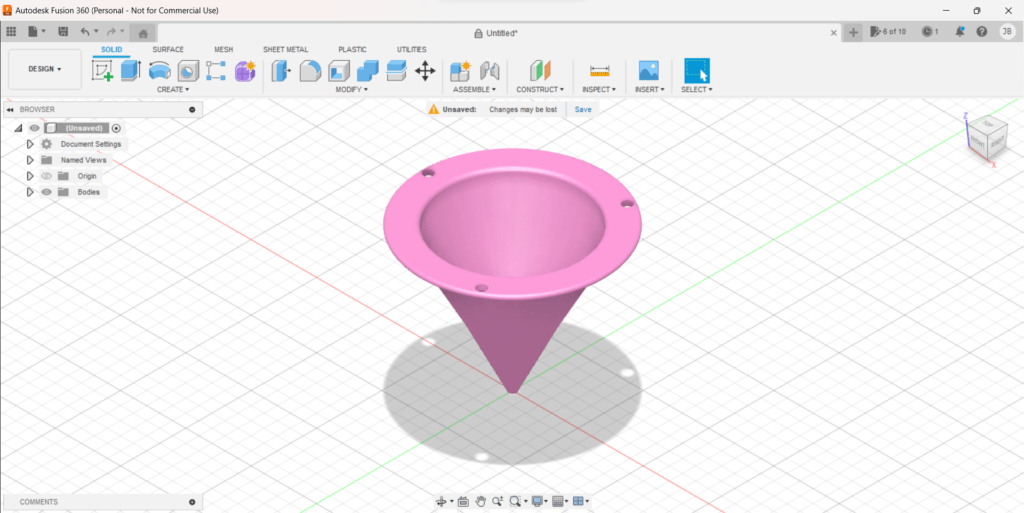
design casing in coral draw.
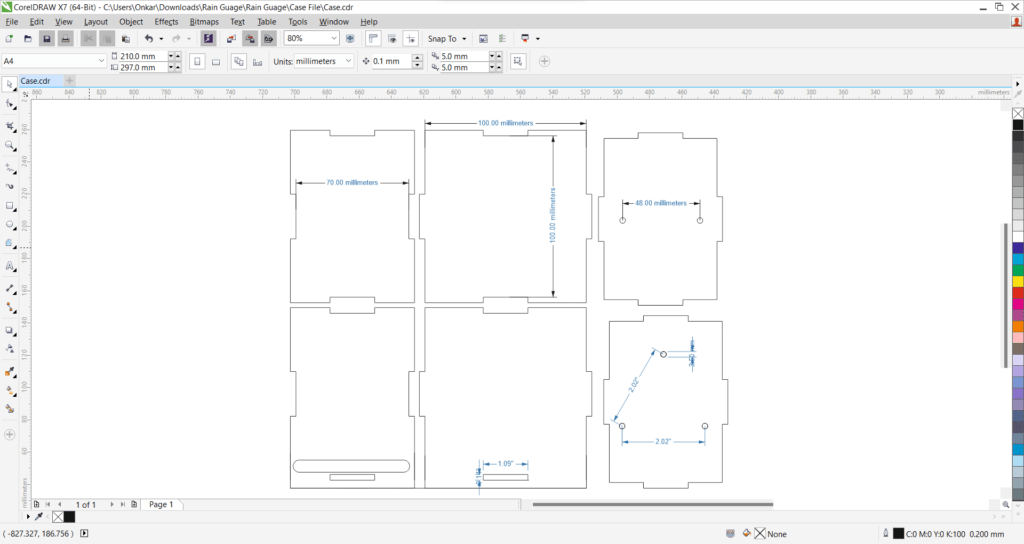
Final How it see
Electronic
Hardware Use:
IR Sensor

An infrared (IR) module is a device that allows communication using infrared light. IR modules consist of an IR transmitter and an IR receiver, and they are commonly used in various applications for remote control, communication, sensing, and detection. An IR (Infrared) module in a rain gauge uses an infrared beam to detect the presence of rain or measure rainfall intensity. It consists of an IR emitter and receiver. When rain enters the collection Bucket, it interrupts the infrared beam, which is detected by the receiver.
Arduino Uno

Arduino can interface with various rain sensors such as an IR module, capacitive sensor, or a tipping bucket sensor. The selected sensor measures the presence or amount of rainfall and provides corresponding electrical signals to the Arduino. Arduino can implement algorithms or calculations to process the sensor data and convert it into meaningful rainfall measurements. For example, it can count the interruptions in the case of an IR module or calculate the frequency of tipping in a tipping bucket sensor.
LCD Display With i2c

LCD displays, or Liquid Crystal Displays, are commonly used in Arduino projects for providing visual feedback and displaying information. Arduino can be connected to various output devices such as an LCD display, LEDs, or serial monitor to visualize the rainfall measurements.
Circuit Digram

Code :
Code download Click here 👇👇
Code Trial
Testing with model
I get a trial of building.
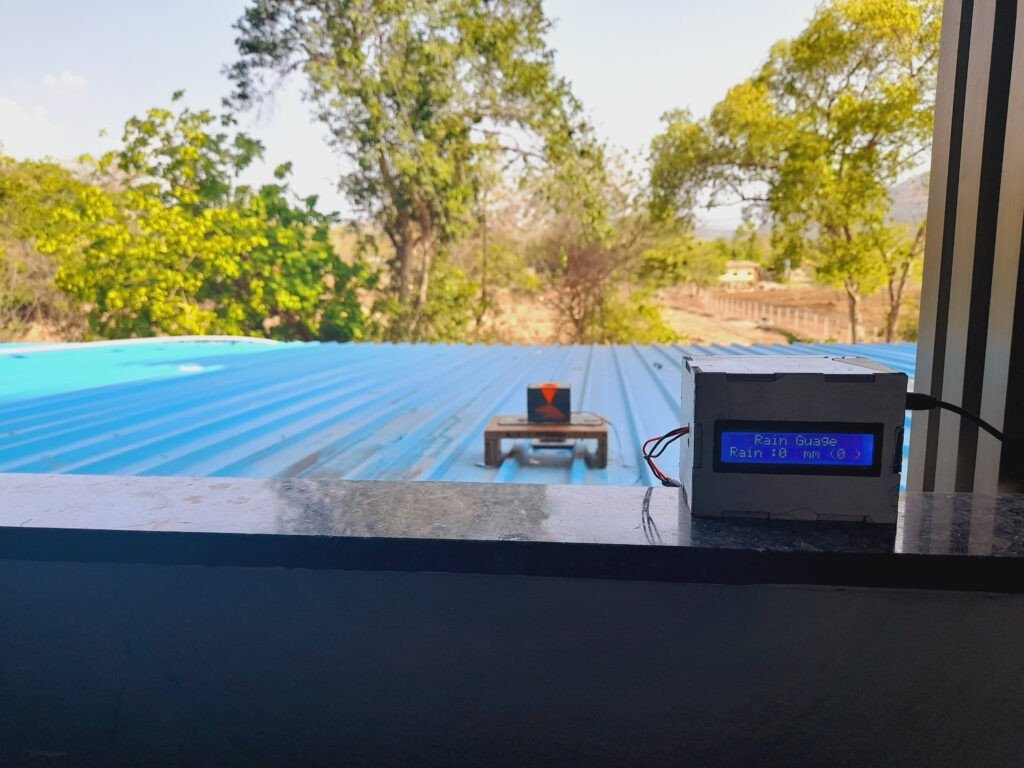
Updating………..

